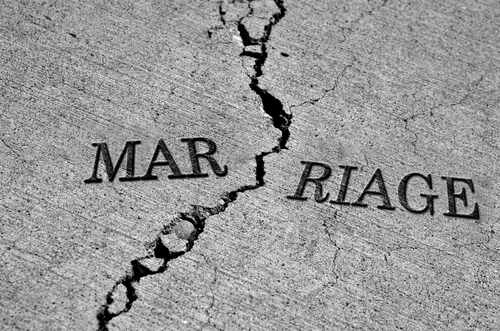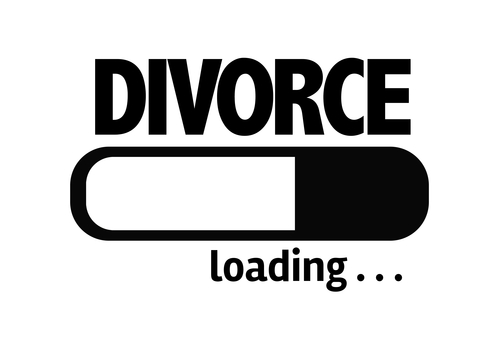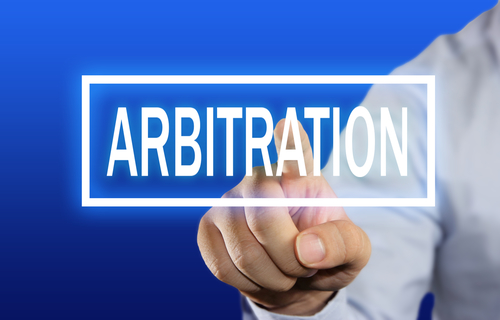Click  for complete answer
for complete answer

What are Some of the Benefits of a Mediated Divorce?
Consider the difference between a battle and a negotiation.

How is Mediation Different?
Mediation acknowledges that the relationship is in transition.

What is Required to Mediate?
Mediation is a voluntary process.

Who are the Mediators?
Mediators are professionals trained specifically in Divorce Mediation.
![]()

What Does the Mediation Process Look Like?
What happens in a mediation is that a mediator, who is a neutral, facilitates the voluntary agreements that couples will make about everything that has to go into either a separation agreement or a stipulation of settlement.
New York State is an equitable distribution state and what that means is that everything that the couple has accrued during the term of the marriage, both assets and debts, is subject to dividing it in a fair and equitable way. Now equitable distribution doesn’t necessarily mean 50-50 although it can, but how the couple will decide to divide their assets and debts is a topic of negotiation during the mediation. What will happen is that you go through the mediation process, in other words we address all of these topics and the couple will make their agreements about it.
Once they are resolved we move on to the next topic and then once that’s completed then the mediation is over and the mediator will write up what’s called a memorandum of understanding, which is an agreement that is not a legal document and then that will be converted into either a separation agreement or a stipulation of settlement by an attorney.

How Does the Mediator Help the Couple Emotionally?
There is no doubt that when a relationship is not longer viable it is a sad event no matter who initiates the separation.

Concerns About the Children?
I would say that, more often than not, the main concern that couples have are the children.
We also talk about unreimbursed medical expenses for the kids and how that would be paid for. That would include the co-pays, for example, or if a doctor that the children might be seeing is out of the health insurance plan. We also talk about extracurricular activities for the children and how that would be paid for. We also talk about college education and how they plan to pay for the children’s college education. In other words, all of the decisions that the couple generally make kind of unwittingly, living under one room, now we have to unbundle those decisions and help the couple figure out how they’re going to co-parent their children going into the future.

What About Custody of the Children?
There are different types of custody arrangements in New York state, and we discuss parenting from a variety of perspectives in the mediation.
“Joint legal custody”: which means equal decision-making about all the major decisions parents make for their children affecting their children’s growth, development, education, well-being, etc.
“Physical residential custody”: which means where the children reside. This can take the form of a number of ways that work for both the parents and children, including a “shared” arrangement.
I would say that more often than not, most couples have discussed who is going to be the residential custodial parent before they walk into the mediation room. If they haven’t worked it out prior to the mediation, or it’s something that hasn’t been discussed yet, we work through it during the sessions.
If after numerous attempts to resolve this, I’ll generally recommend that they meet with a child psychologist to help them work it out and determine what’s in the best interest of the children.
All the research on children and divorce strongly suggest that kids are better off when there are two very involved parents, no matter where they live. And that parents NOT put the children in the middle of any dispute or disagreement that the parents have, nor make them the secret keepers and/or messengers.

What About the House?
What if I want to stay in the house and my spouse wants to sell it?
If there are children in a marriage, more often than not couple will both agree that the residential custodial parent should stay in the house for a certain period of time. They’ll usually time it with respect to the children’s schooling. So if you’ve got a child who’s in elementary school, they may decide to let the residential custodial parent stay in the house, at least until that child is ready to switch to middle school. Or if the children are in high school, they’ll wait until the children go off to college.
Whether or not one spouse wants to stay in the house and the other doesn’t, they both have to agree about what ultimately is going to happen with the house. Either they’ll both agree that one of them will stay in there for a certain period of time and then that will trigger either that spouse buying out the other spouse’s interest in the house, or the other way around, or they’ll both agree at that point to put the house up for sale and split the net proceeds on the house. If one person wants to sell and one person wants to stay, that is something that they both have to ultimately agree to.
Mediation really is an excellent place to talk that out, because what happens very often is they both are in their head about what their rights are, what they want to do, what they don’t want to do. Very often, talking out this issue to find out what the common ground is and the mutual interest is will generally help to resolve the issue about the house.

What Happens After the Couple Reaches an Agreement?
Once the mediation has been completed and all the agreements are made, a legal agreement that incorporates all the issues covered in mediation will be drafted.

What is a Separation Agreement vs. Stipulation of Settlement?
The difference between a Separation Agreement and a Stipulation of Settlement is as follows:
- They could live under the terms of the Separation Agreement for a year or more. Then when the year was up – it didn’t mean that the divorce judgement was final, it meant that they had the option from that point forward to file for an uncontested divorce with the grounds for the divorce being that they had lived under the terms of the Separation Agreement for a minimum of a year.
- The other option was that if they wanted to file for the divorce immediately, of course they could do that as well. So instead of writing up a Separation Agreement, a Stipulation of Settlement was drafted and then filed with the court.
A Stipulation of Settlement is almost an identical agreement to a Separation Agreement in that it lays out all of the terms of the agreements that the couple has made with each other. The only difference is the title of the document, and an additional provision that addressed the grounds of the divorce. Prior to New York state being a “no fault” divorce state, when a couple wished to file for an uncontested divorce, most couples chose the grounds of “constructive abandonment.” Constructive abandonment legally meant that the couple had not been having marital relations for a year or more. One party is the plaintiff and the other party is the defendant; the defendant is the one who says that he or she constructively abandoned the marriage.
Now that New York is a “no fault” state, these grounds are no longer necessary. There still has to be grounds for the divorce, but we simply state that… “disputes and irreconcilable difference have arisen between the parties which has resulted in an irretrievable breakdown of the marriage for a period of at least six (6) months prior to the execution of the Agreement…” It is no longer necessary for the parties to to wait that 12 month period in order to file for the divorce right away – or to have to accuse the other with either constructive abandonment or any of the other menu of unpalatable reasons for wanting to do so. In other words, neither party has to blame the other for wanting the divorce.
In fact, now with “no fault”, we can simply title the document a Settlement Agreement. No matter what we call it: Separation Agreement, Stipulation of Settlement Agreement, Settlement Agreement – it’s a contract. Plain and simple.
Now, there are some reasons that couples will live under a Settlement Agreement rather than file for a divorce right away. Some of these reasons are:
- Emotional: They’re not really sure that they’re ready to file for the divorce right away. They may need time to live separately and apart from each other for a while. They may need time to let the children adjust to the new reality and see how that goes before they decide whether they want to take that final step and file for the divorce.
- Financial/Health Insurance: While the couple is living under a separation agreement, the spouse who is being covered by the other spouse’s health insurance is still entitled to that health coverage because the insurance company considers the couple married although separated. By living under a Settlement Agreement, it the covered spouse the time and opportunity to do one of the following:
a) Negotiate with each other about the costs of COBRA benefits, which they would be entitled to for three years (36 months) upon the judgement of divorce.
b) Be able to figure out a way to obtain their own independent health coverage. The issue of health insurance coverage and costs alone is a big reason that many couples will live under a Settlement Agreement for a period of time. - Financial/Tax Filing Status: There may be a potential advantage of living under the Settlement Agreement for some period of time so that they can continue to file a joint tax return. As a separated but not yet divorced couple, they can still do this if they wish.
All of these topics are addressed in great detail during the mediation process so that the parties can make the best and most informed decisions for themselves.

How Much Does Mediation Cost?
A mediation is a much more cost-effective way of pursuing a separation and a divorce.
A typical mediation from beginning to end will cost approximately what one retainer fee could be from an attorney. Of course, not all mediations are typical by any means, but I know that people choose mediation for two reasons:
- They want to do things as amicably as possible.
- They want to save money.
In mediation, our focus and intention is to do exactly that.

How Long Does it Take to Mediate a Divorce?
I would say on average it takes somewhere between three and five sessions to complete a mediation.

What Do We Bring to the First Mediation Session?
The first session is generally a getting acquainted session.
At my first session, I want to meet with the couple, I want to talk to both of them, kind of get a sense of what has been going on with the two of them, if they’ve been in marriage counseling, how that went, if they’ve made any agreements with each other so far. Sometimes couples come to my session and they’ve already had some conversations about what they want to do about custody, they’ve discussed what they want to do in terms of extracurricular activities for the children, they’ve worked out some sort of a parenting plan. I want to know what they’ve been thinking about, what they feel is in the best interest of the family before we get started and I start asking my questions.

Does Mediation Work for Everyone?
No, but it works for most couples and not just for couples who already know how to cooperate.

What Other Resources do You Provide?
We take a multi-faceted approach to our mediation in helping our couples and their families.

How Do We File for Divorce After Mediating
Once the mediation is completed, the parties have the option to live under the Settlement Agreement for an unspecified period of time (as long as they wish) or file for the divorce right away.
As a “one stop shop” – I can have one of the attorneys who I work with file the divorce package for them. Or, if they’ve had their Settlement Agreement reviewed by a “review” attorney, they can ask one of their attorneys to file the papers for them OR the parties could file the package themselves. It’s a little complicated to file divorce papers, so it’s generally recommended that you have an attorney file the divorce papers for you.

Mediation vs. Litigation?
The first question would be, what is the difference between a mediation and a litigation, or hiring an attorney?
So the wife hires an attorney to represent her, the husband has an attorney that he hires to represent him, and now you’ve got two legal fees. Generally what will happen is that the attorneys will require a retainer fee and you could be asked to give them somewhere between I’m going to say $3,500, maybe as much as $10,000 each. And so you’re in for quite a bit of money before you’ve even begun the process.
What happens in mediation is that the mediator meets with the couple together. There’s no retainer fee. You pay as you go. That way, the costs are really reduced tremendously right out of the starting gate.

What if My Spouse Doesn’t Want to Mediate?
This is a common question.
Once you start a litigation, it’s difficult to stop that process and come to mediation, although I have had a number of couples who did start in a litigated setting, decided it really was inappropriate for them, it wasn’t good for the family, it wasn’t good for them, and they decided to stop it and come to mediation. But that doesn’t happen that often. More often than not, it’s easier to start with a mediation. If the mediation does break down, you always have the option to litigate.

When Would We Use Arbitration?
I write into my agreement that once the mediation is completed and they’ve signed and notarized their agreement, if they have any disputes post that.
By going to an arbitrator, it’s a more streamlined process than going through the court system. It’s a little easier … it’s a little bit more streamlined. An arbitrator will hear the situation, will listen to both parties concerns about the issue and then will ultimately make a decision as a judge would. It will have the same force and effect as if they did go to court, but as they said it’s a more streamlined approach than going through the court system.

DIY or Do it Yourself Divorce in NY?
Couples can file for their divorce by themselves but I’m going to say that it’s generally not a recommended thing to do.

What is a Collaborative Divorce?
A collaborative divorce kind of looks like a mediation, in that a couple will be represented by their respective attorneys who will be in the room with the couple, with the other opposing party, and they will work out, or attempt to work out, as we do in a mediation, all of the issues that have to be agreed to and resolved. What happens is, the couple is paying for their attorneys to be in the room.
It can streamline things for couples who are highly contentious, who have a high net worth, so for those people it might be a less expensive process, certainly, than litigating the divorce. What happens in a collaborative process though, is that if the couple do not reach agreements, and they do decide ultimately to litigate, the attorneys who are representing them in the collaborative process now have to recuse themselves from the litigation, and the couple has to now hire new attorneys to litigate their divorce.
|
Divorce Mediation is Far Less Costly Than a Litigated Divorce “Using the mediation process is a great way to manage your finances and afford to be able to move on.” – Diane |
